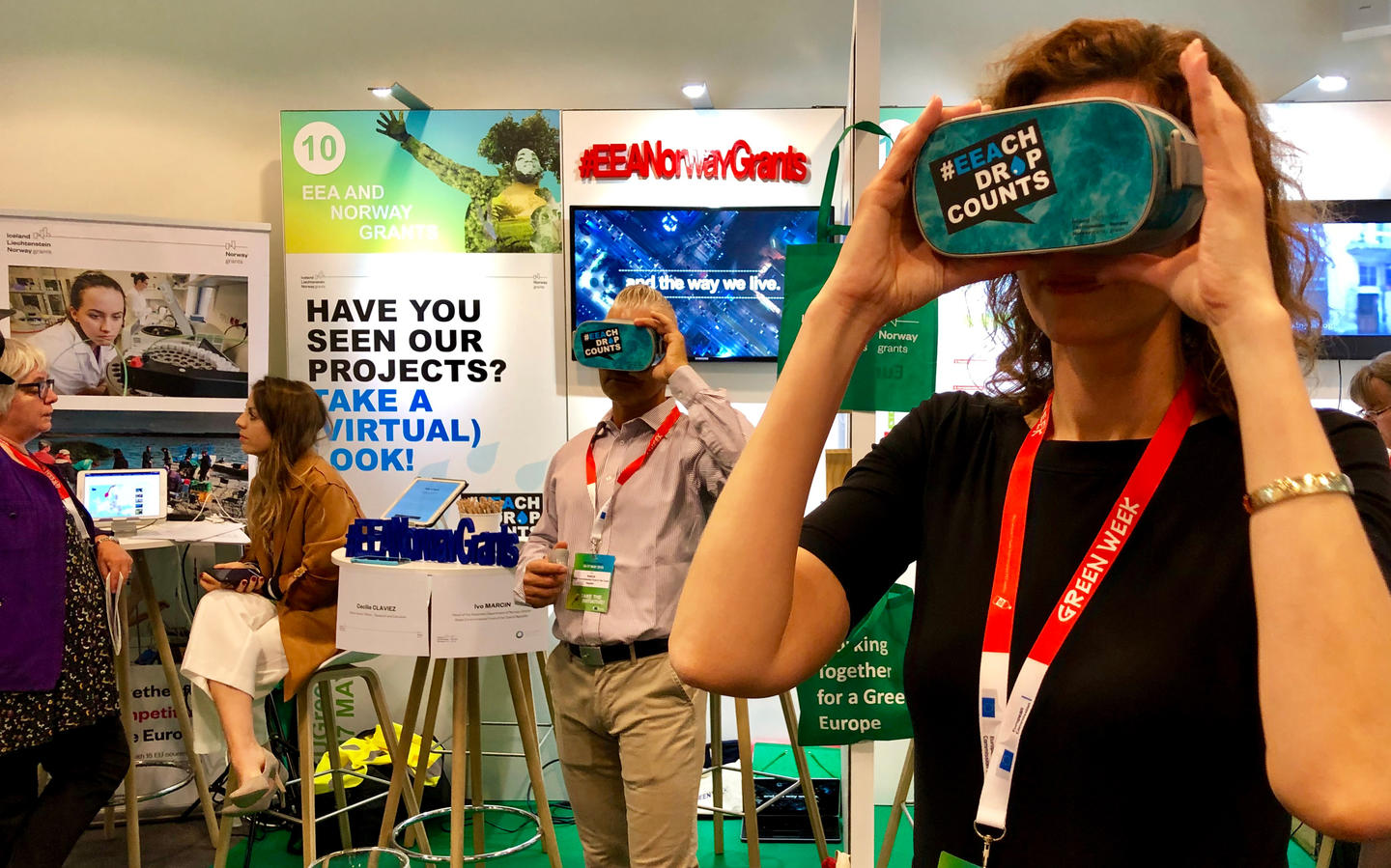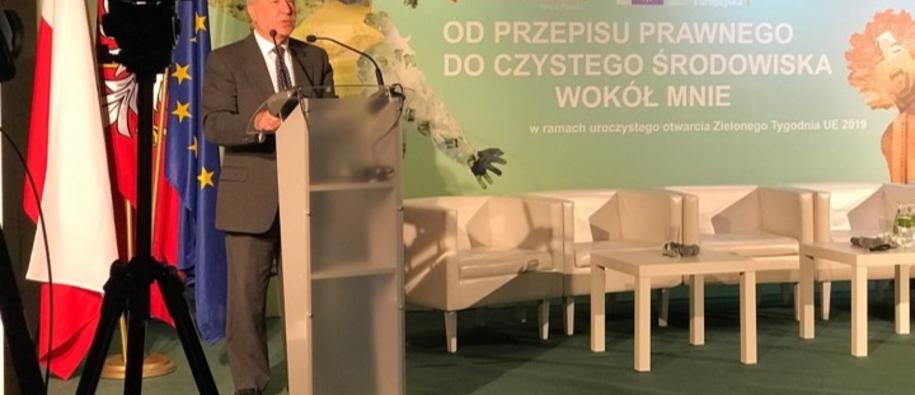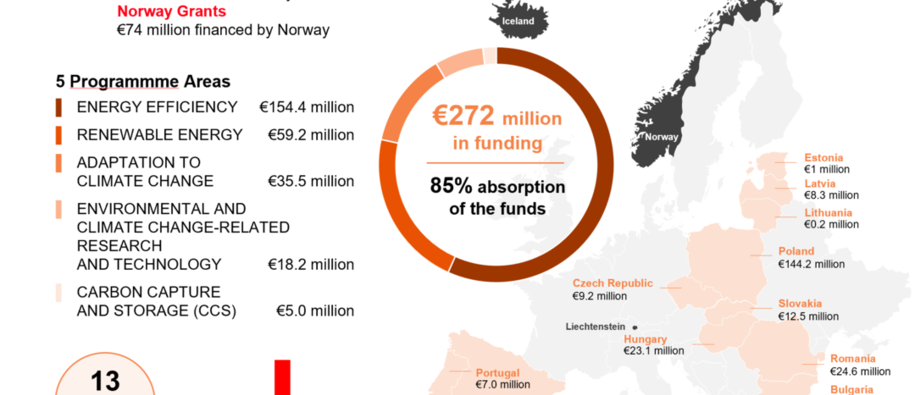A large event - with much-needed impact
This year's edition of the #EUGreenWeek has a specific focus on how to apply environmental legislation. Environmental laws have a huge impact on our life. They improve water and air quality, they protect nature and they encourage recycling and waste management. But to really make a difference, they have to be properly implemented.
"I want this year’s Green Week to be a reminder of the power you have at your disposal. Implementation is all about you – it happens on a daily basis, on the ground, from people like you."
Karmenu Vella is the European Commissioner for Environment, Fisheries and Maritime Affairs.
Resource-efficient and sustainable use of natural capital, reduced vulnerability to climate change and a step towards a less carbon- intensive and more energy- secure economy are key factors for economic and social cohesion in Europe. The EEA and Norway Grants aim to ensure good environmental status of our ecosystems, timely adaptation and mitigation to climate change and increased use of renewable energy.
The Grants are addressing this by funding projects in the sector. This includes concrete measures, such as restoration of degraded land, development of data monitoring systems for species and habitats, and mapping of ecosystems for the purposes of economic valuation. Primarily, the Grants work to increase the competence and capacity of relevant institutions and building the knowledge base for sustainable management of natural resources.
- Around 40 climate change adaptation strategies developed at local, regional and national levels in Estonia, Czech Republic, Hungary, Portugal, Romania, and Slovakia
- 490,000 tonnes of CO2 emissions reduced in Poland through renewable energy and energy efficiency projects
- At least 21,000 students involved in educational activities focusing on climate change
Investing in the future
Climate change continuously shapes the world’s economic and social development. The European Environment Agency (EEA) pointed out that rising sea levels, altered rainfall patterns, and increased frequency of extreme weather events are already affecting citizens and ecosystems in Europe in a multitude of ways. That means future generations will still have to face more floods, droughts and climate-related challenges in the near future unless urgent measures are taken.
The development and adoption of national adaptation strategies is critical to protect our environment, safeguard our economy and build a sustainable future. All 15 EU countries supported through the EEA and Norway Grants have ratified the Paris Agreement on limiting global warming, and the EU has updated its strategies and targets through i.a. the 2030 Climate and Energy Framework.
Under the Grants, ca. €22 million have been granted to 143 environmental research projects. Civil society is another important contributor to an improved environment, and the Grants have close to 600 NGO projects dedicated to environmental and climate change issues, amounting to ca. €30 million in funding just to name a few.
Knowledge is key
There is a strong and much-needed focus on addressing knowledge gaps on climate adaptation in order to improve decision-making processes, and to mainstream adaptation planning across sectors and at the local level. The EEA and Norway Grants have played an important role in these areas – both through the development of national, regional, and local adaptation strategies and through the development of comprehensive data systems for climate scenarios and adaptation planning.
Information gathering, assessments of climate trends and sector-specific contributions, public awareness and education activities are key to make sure change is happening where we need it.
A great example is the Malta Water Conservation Centre and its crucial work to bring the next Maltese generations up to speed on the importance of taking care of scarce resources. The Grants supported the creation of the centre which recently received the EU Sustainability Award.
Find out more about the projects we have supported in the Climate Change and Energy sector


